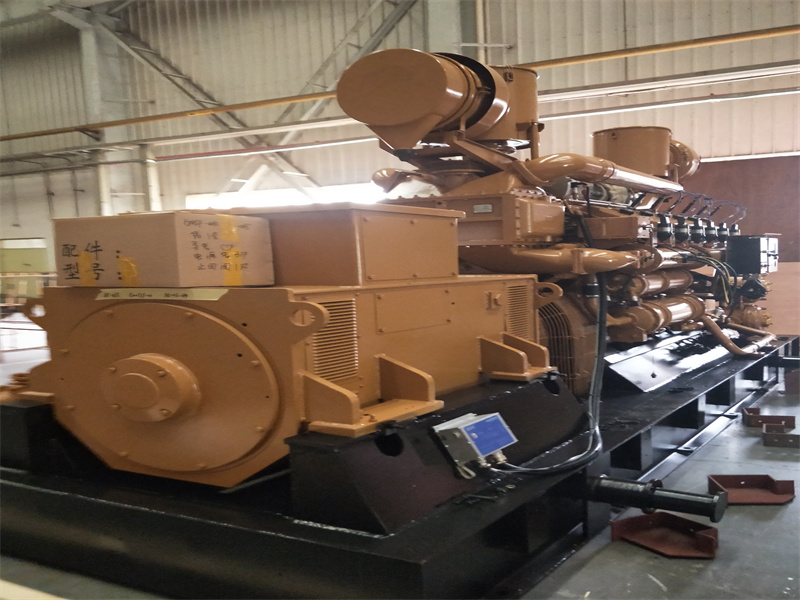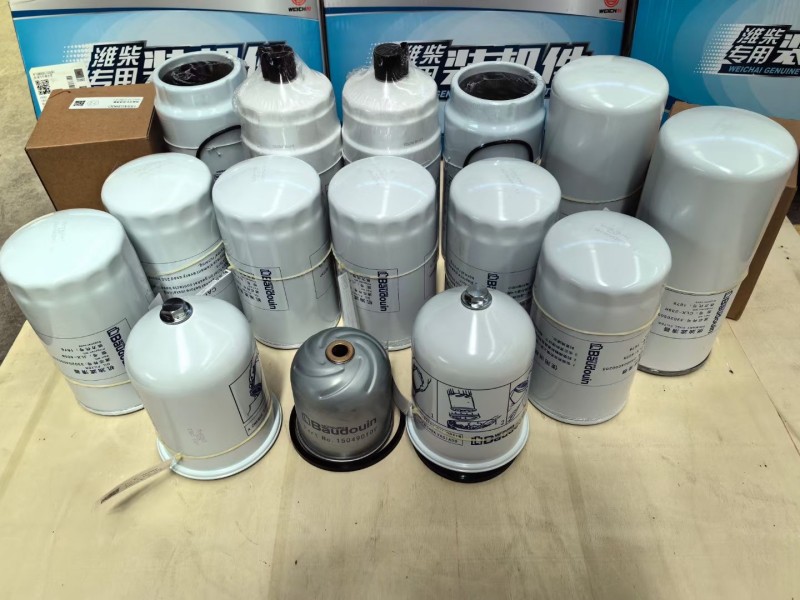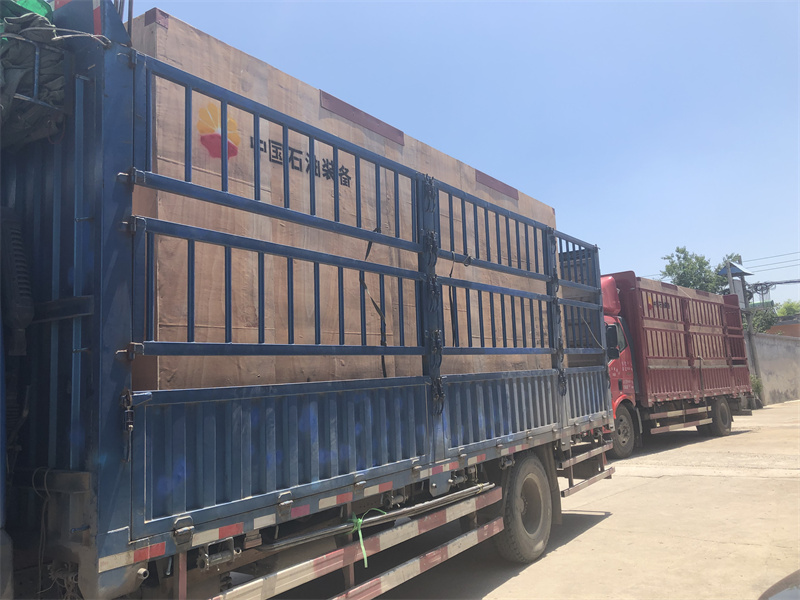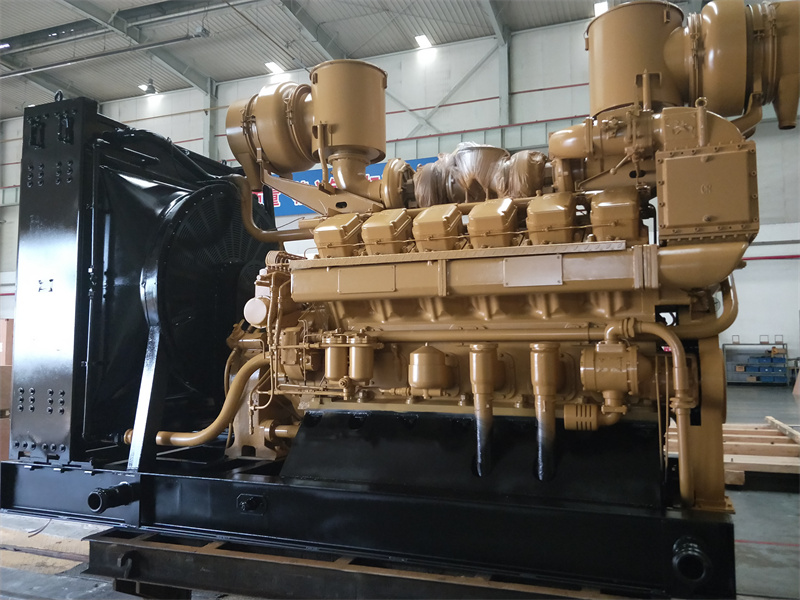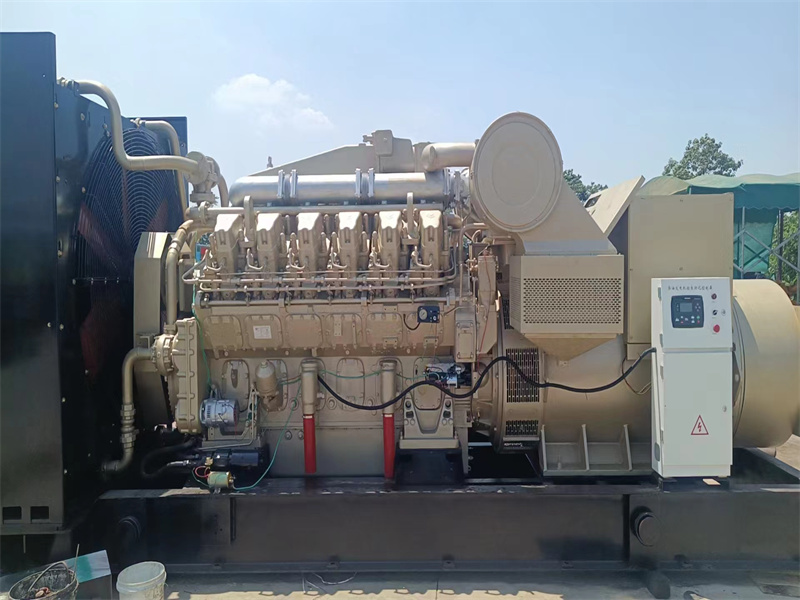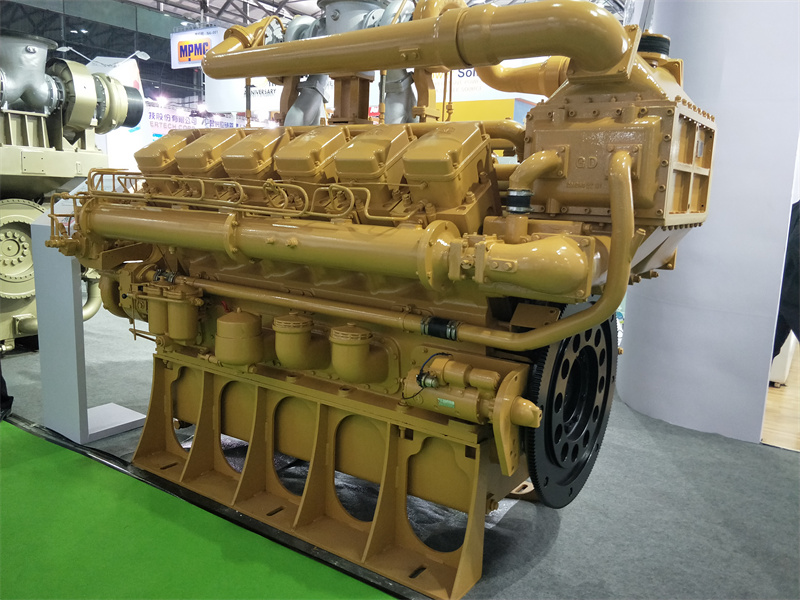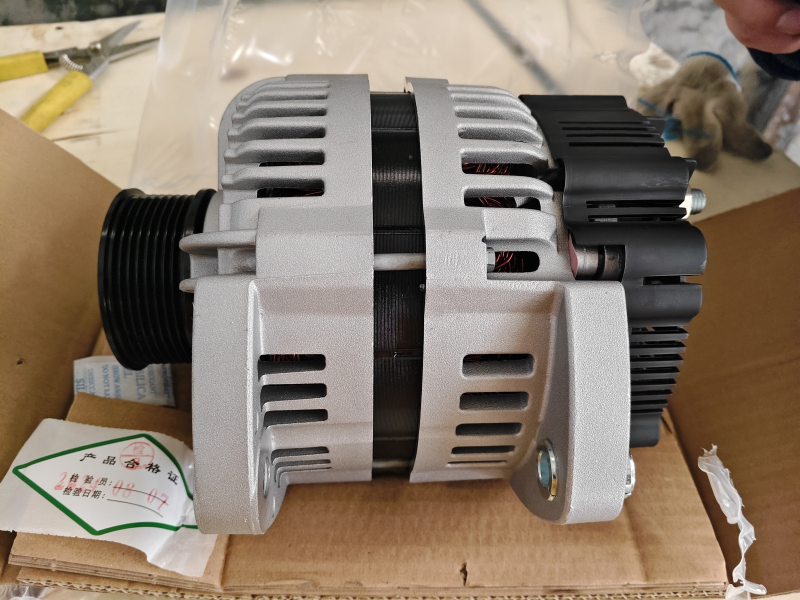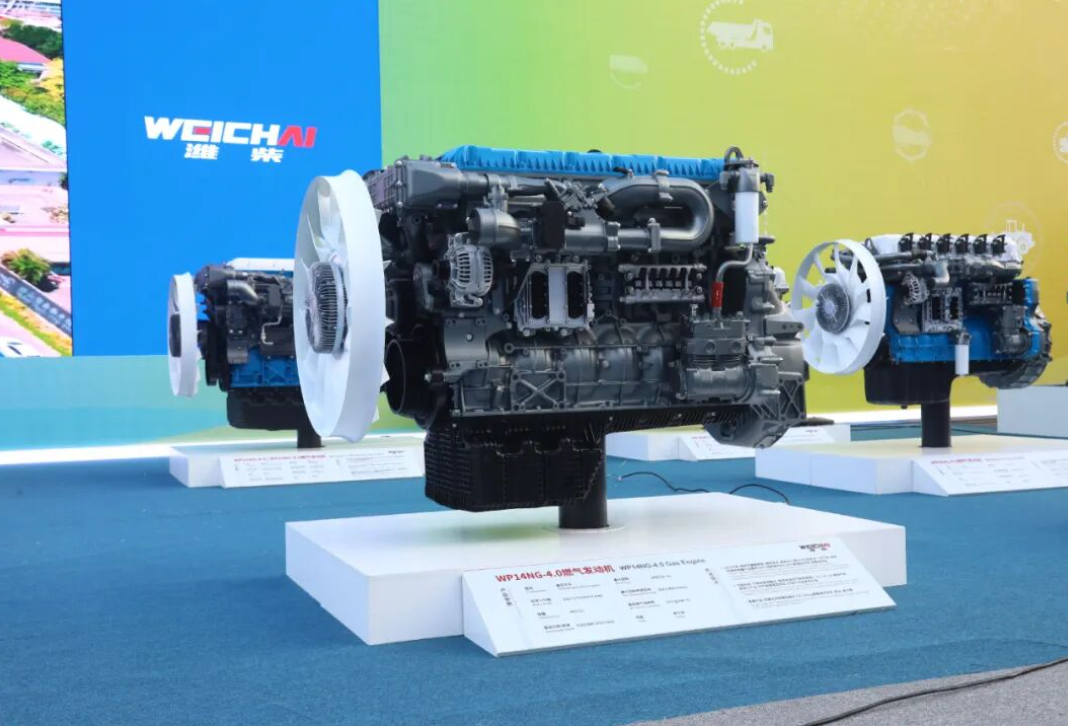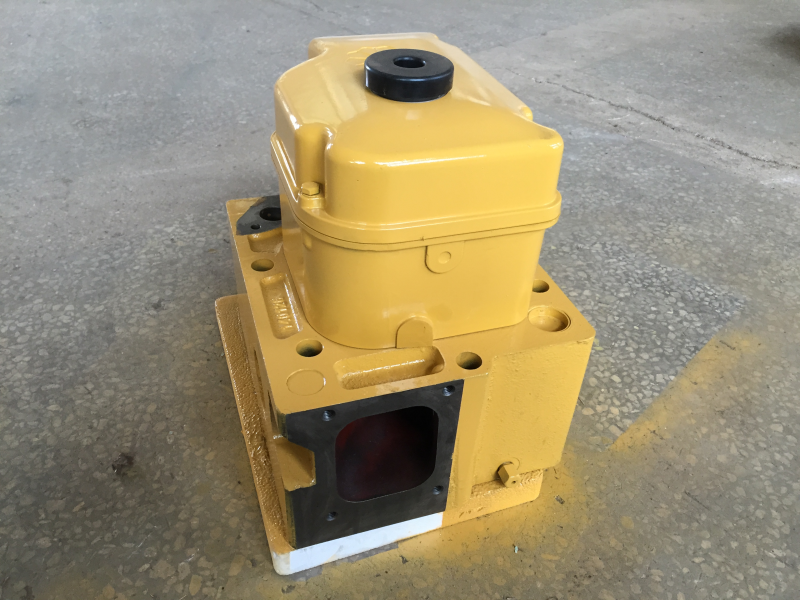Welcome to Shandong Hongfan Power Technology Co.,Ltd
How Much Does It Cost to Run a Gas Generator
Key Factors Affecting the Cost of Running a Generator on Natural Gas
Size of the Generator: It's natural that a Larger generators burn more natural gas. For instance, 1000KW natural gas generator desgined by CNPC JICHAI POWER consume more gas than 500KW jinan engine.
Price of Natural Gas: The cost of natural gas varies depending on where you live. In places like landfill sites rich in biogas, coal mines rich in coal gas, and areas in Xinjiang, China, which are abundant in natural gas, the cost of gas is almost negligible.
Generator Load: Generators can operate anywhere from 0% to 100% of their rated output. Running a generator at full load will increase the fuel consumption significantly compared to running it at partial load (e.g., 50% or 25% load).
With these factors in mind, you can accurately estimate the cost of running your natural gas generator, whether it’s for an hour, a day, a week, or even a month.
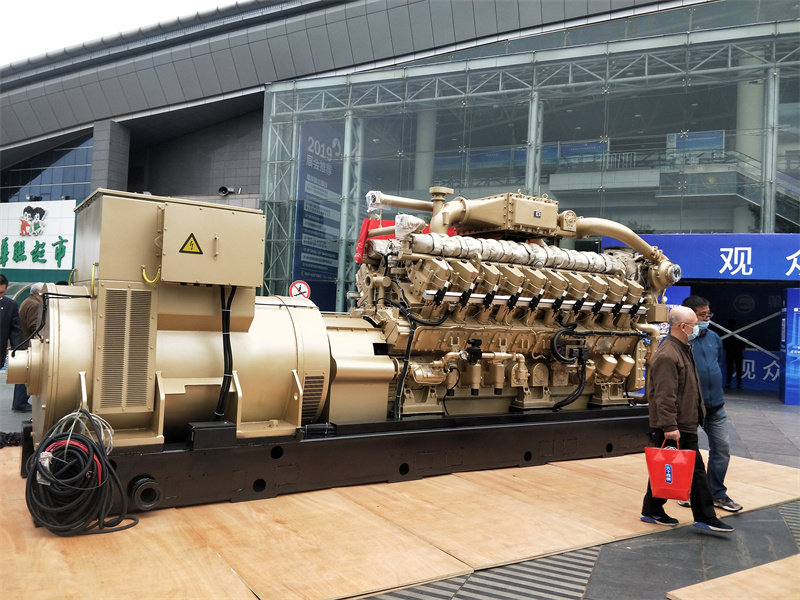
How Much Does It Cost to Run a Generator on Natural Gas?
The cost of running a generator on natural gas can range from $0.02 to $2.41 per hour, depending on the generator’s size and load. Here’s a breakdown of the costs based on generator size and load:
Small Generators (1,000W to 5,000W): These generators use between 1.86 cubic feet and 37.15 cubic feet of natural gas per hour. The hourly running cost ranges from $0.02 to $0.40.
Medium to Large Generators (6,000W to 15,000W): These generators consume between 44.58 cubic feet and 111.45 cubic feet of natural gas per hour. The cost to run them ranges from $0.48 to $1.21 per hour.
Very Large Generators (20,000W to 30,000W): These powerful generators burn between 148.60 cubic feet and 222.90 cubic feet of natural gas per hour, with running costs from $1.61 to $2.41 per hour.
Let’s take a closer look at the running costs for a 10,000W generator running at full load (100%):
Consumption: A 10,000W generator running at full load consumes approximately 74.30 cubic feet of natural gas per hour.
Cost: At an average price of $10.83 per 1,000 cubic feet of natural gas, the running cost is $0.80 per hour.
Standard Gas Composition for Gas Generators
The composition of fuel gas is vital to the proper functioning of gas generators. Below are the key components and their required concentrations in standard fuel gas for generators:
Component Volume (%) Methane (CH4) ≥76.0% Ethane (C2H6) <10.0% Propane (C3H8) <8.00% Butane (C4H10) <6.00% Hydrogen Sulfide (H2S) <0.10% Carbon Dioxide (CO2) <1.00% Calorific Value ≥41,860 KJ/m³
Formula for Calculating Fuel Consumption and Running Cost
To calculate how much natural gas a generator uses, you can use the following fuel consumption formula:
Fuel Consumption Per Hour = (Maximum Wattage × Load × 7.43 Cubic Feet of Natural Gas) ÷ 1,000
For example, if you run a 5,000W generator at 60% load, the calculation would be:
Fuel Consumption Per Hour = (5,000W × 0.6 × 7.43 cubic feet) ÷ 1,000 = 22.29 cubic feet of natural gas per hour
To calculate the running cost, we use the formula:
Running Cost = (Quantity of Gas Consumed in ft³) × (Price of Natural Gas per 1,000 ft³) ÷ 1,000
For a 5,000W generator consuming 22.29 cubic feet of natural gas per hour, and using the average price of $10.83 per 1,000 cubic feet, the hourly cost would be:
Running Cost = 22.29 ft³ × $10.83 ÷ 1,000 = $0.24 per hour
Example: How Much Does It Cost to Run a Whole-House Generator?
Let’s say you have a whole-house generator that uses 1,200 cubic feet of natural gas per day. To calculate the daily cost, use the running cost formula:
Running Cost = 1,200 ft³ × $10.83 ÷ 1,000 = $13.00 per day
So, running a whole-house generator will cost you around $13 per day to operate.
Conclusion
The cost of running a natural gas generator depends on the size of the generator, the load at which it operates, and the price of natural gas in your area. By using the formulas and tools provided in this guide, you can easily estimate the running cost of your generator and make more informed decisions about energy usage. Whether you’re using a small 1,000W generator or a larger 30,000W unit, understanding the fuel consumption and costs will help you manage your power needs more efficiently.
